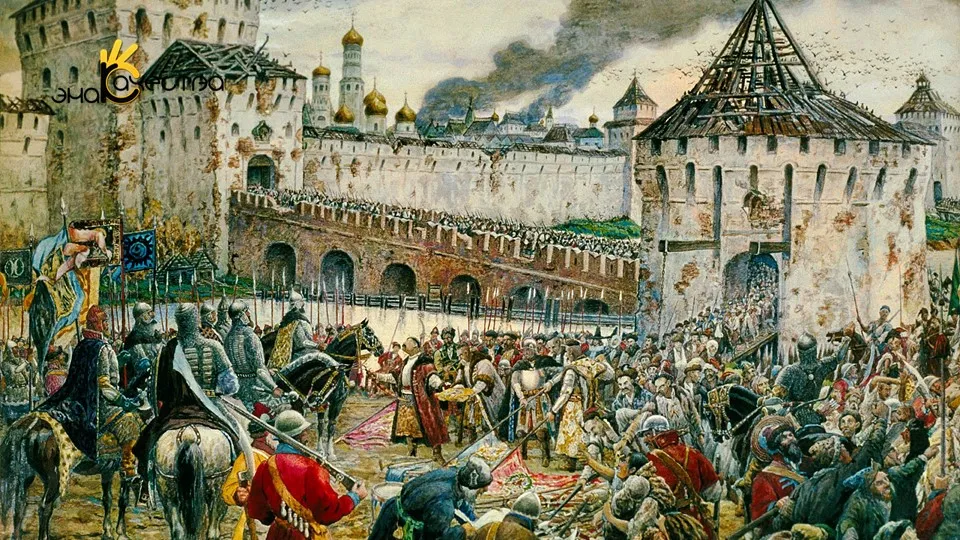My posts about Peter the Great are quite popular on Golos («Russian Steemit»). So, I decided to tell you about this charismatic tsar too. Hope, it will be interesting. So, I want to begin from the very beginning and to talk about Peter's childhood. A banal thing – every one of us comes from one's childhood. Peter's love for science, cruelty with relatives, military victories, personal setbacks and even the foundation of Saint-Petersburg are only consequences of a curly-haired boy named Petya.
Russia after the Time of Troubles («Smutnoe Vremya»)
Modern historians believe, that Peter's reforms were harsh and sudden. In fact, people in the second half of the XVII century expected changes and understood them – both the need and the proximity.
After the Time of Troubles, Russia was a deep province, a miserable Muscovy, a boring principality - with a backward economy and a miserly army of streltsy (Russian archers). Tsar Alexei Mikhailovich (Peter's father) tried to reform all this stuff – the first dragoon regiments appeared in the manner of foreign, and even the first ships. Probably, there was no sea in Russia (only the Caspian Sea).
The victory over Patriarch Nikon (and the supremacy of the church) was the other important victory of Alexei Mikhailovich. It was the first time ever when The State became the main power in the country. At the beginning of Peter's reign, the churchmen tried to take over, but Peter, of course, hasn't given them any chance. All his life he will treat religion with a certain demonstrative contempt. For example, until the end of life, Peter wore a cross of two wooden dicks on his neck.
There were wars before Peter too. But the Russians never tried to conquer anything – mostly fought back. They also dreamed of regaining lost lands - from the Crimean Khan, Swedes and even Poles, who were always beaten by all the rulers of Europe at all times. Under Sophia, the Turks become the enemy of Russia. Indirectly, they certainly were enemies (nevertheless, allied with the Crimean Khanate), but there was no direct enmity. Vasily Golitsyn's campaigns ended sadly.
The development of education also began before Peter, mostly thanks to The Church. And even the Foreign teachers became popular earlier. At the same time, the famous German settlement near Moscow was formed. It became a window to Europe for the tsar himself.
But the gap was still huge, and the process itself was too slow. In addition, at a time when Europe, after experiencing the bourgeois revolutions, struggled with medieval principles, Russia only accepted it's first Law (in 1649). This document essentially fixed serfdom and contributed to stagnation. The labor force in Europe dispersed to raise cities, and in Russia – was concentrated in the villages. The economy was left without economic growth, industrial development, and urban dynamics.
Grim Russian middle ages buried all the best that was brought to the country from Europe under itself. The lawlessness of officials, mutual corruption, impoverished village, poor culture – this is something with which Russia approached the ascent to the throne, the future Peter the Great.
Next time I will tell you about Peter's childhood. Have a nice time.
 ![smutnoe-vremya.jpg]
![smutnoe-vremya.jpg]